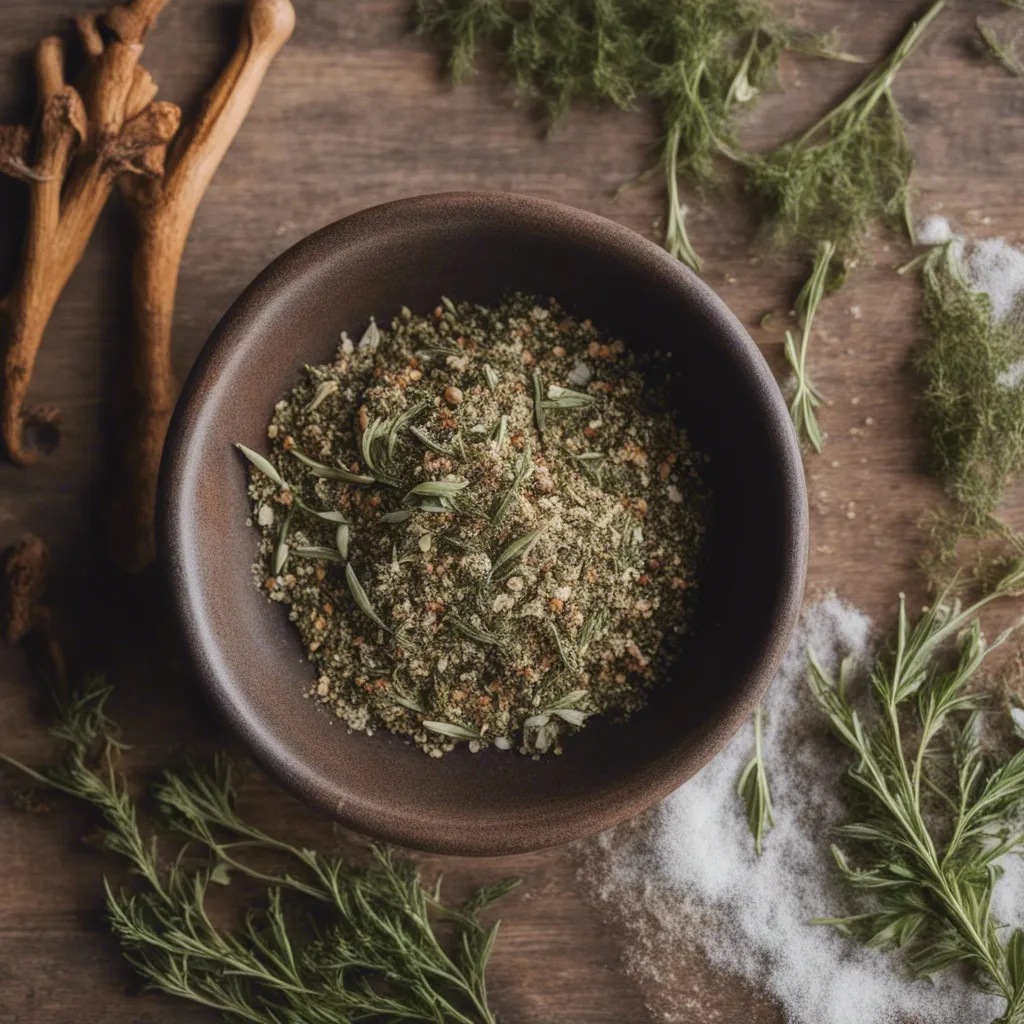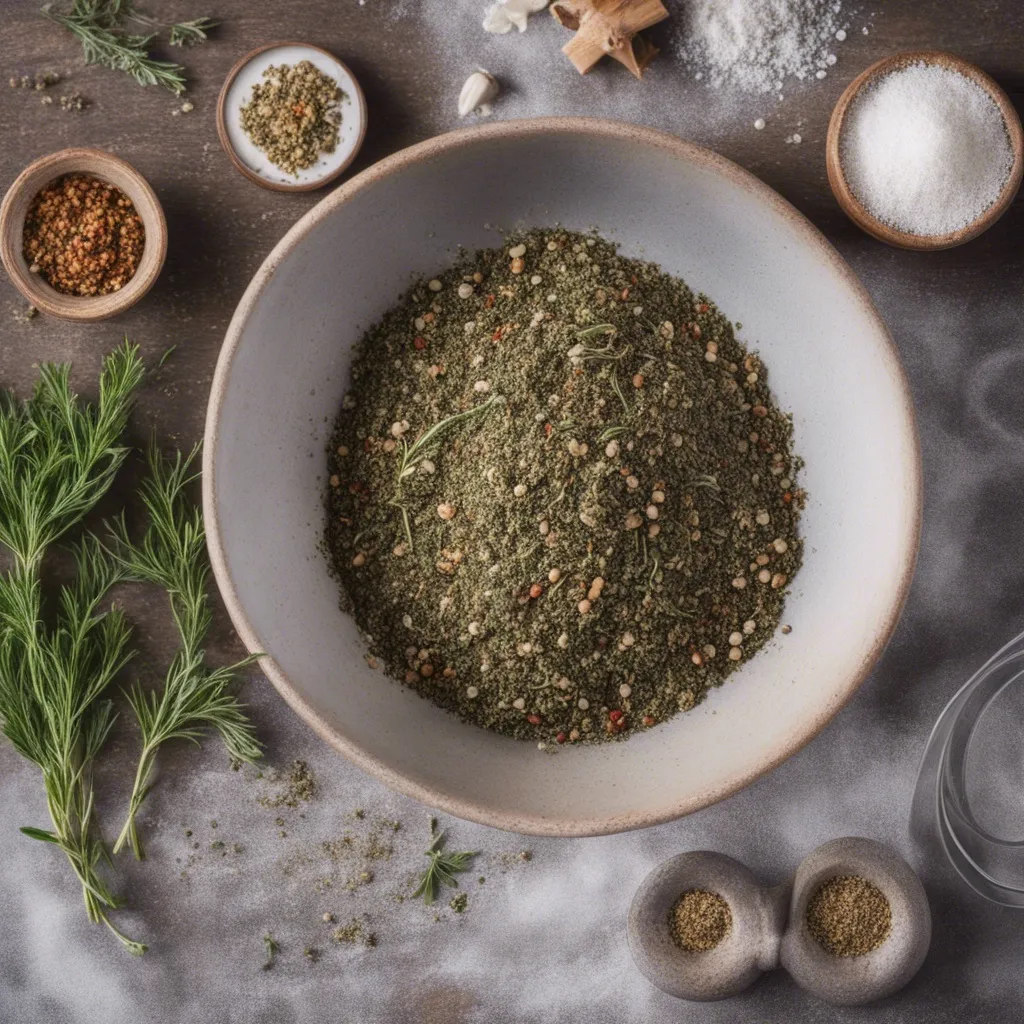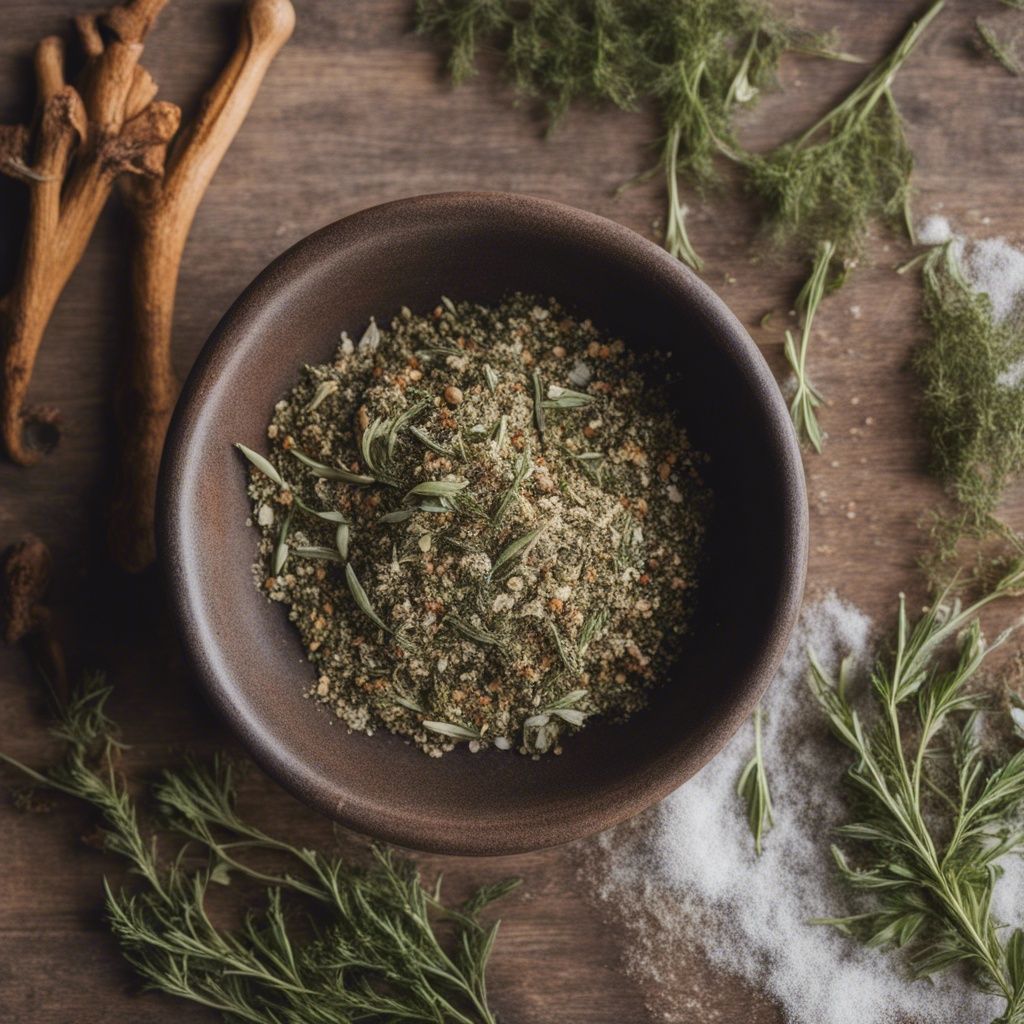Ultimate Lamb Seasoning
Lamb’s unique flavor and tender texture make it an ideal choice for seasoning, and by carefully selecting spices and herbs, we can highlight its natural, delicious flavors. In our kitchen, we’ve discovered that seasoning our lamb is a complete game-changer for any dish.

Seasoning the Lamb
Our kitchen is about finding the perfect balance for lamb’s naturally rich and slightly gamey flavor. The proper seasoning can transform any lamb dish into something truly special, leaving you going back for more. We’re excited to delve a little bit deeper into what the seasoning does for the lamb;
- Garlic powder: A staple in our spice rack, garlic powder brings a sweet yet sharp taste that complements the robust flavor of lamb beautifully. It provides a more consistent flavor than fresh garlic, giving off a delicate, garlicky taste.
- Onion powder: We pair garlic powder with onion powder for its rich, umami flavor. It enhances the meat’s savory taste without the bitterness of raw onions, making it an essential element in our lamb seasoning mix.
- Black pepper: The mild heat and distinctive flavor of black pepper provide a perfect counterpoint to the richness of lamb. We prefer freshly cracked pepper for its vibrant essential oils and flavor.
- Dried rosemary: A traditional favorite with lamb, dried rosemary offers piney and lemony nuances. While less potent than the fresh variety, it still imparts Mediterranean charm to the meat.
- Salt: More than just a seasoning, salt is vital as it enhances the natural flavors of lamb and helps tenderize it. When seared, it forms a delicious crust that adds both texture and taste to the meat.
- Mint: To contrast the warm flavors typically found in lamb seasoning, we add mint for its fresh, cooling effect. This classic pairing offers a refreshing finish, cleansing the palate and complementing the meat’s richness.
Spice and seasoning
Depending on what you need and what from your seasoning, we have multiple variations highlighting your lamb and making it pop in your dishes. Just add the following to the base seasoning for an extra kick;
- Cumin and coriander mix: Adding ground cumin and coriander to the lamb seasoning introduces a warm, earthy flavor with a hint of citrus. This blend is perfect for a Middle Eastern twist.
- Smoked paprika and thyme: Incorporate smoked paprika for a subtle smokiness and dried thyme for an earthy, slightly minty flavor. This combination brings a unique depth and complexity to the lamb.
- Cinnamon and nutmeg: A pinch of cinnamon and nutmeg can add a sweet, warming note to the seasoning. This pairing is ideal for a slightly sweet and aromatic profile.
- Curry powder blend: Mix in some curry powder for an Indian-inspired flavor. The blend of spices like turmeric, ginger, and fenugreek in curry powder adds a vibrant and exotic touch.
- Chili flakes and oregano: For a bit of heat, add chili flakes and balance it with dried oregano for a Mediterranean flair. This combo is excellent for those who enjoy a spicy kick.

- Lemon zest and parsley: Adding finely grated lemon zest and dried parsley gives a fresh and zesty profile, perfect for a lighter, summery flavor.
- Rosemary and garlic chip mix: Instead of garlic powder, use thinly sliced garlic chips combined with extra rosemary. This variant is great for a more pronounced garlic flavor with a rustic touch.
- Fennel seeds and sage: Ground fennel seeds and dried sage bring a slightly sweet, anise-like flavor and a piney, earthy aroma. This combination is excellent for a sophisticated, aromatic seasoning.
If you want to explore new flavors for your lamb seasoning, we have just the thing you can try - our lamb taco recipe. It’s an excellent opportunity to play around with different spice combinations and discover which flavors you enjoy most.
What’s the best way to apply seasoning to lamb?
Apply your seasoning generously and evenly. For best results, rub the seasoning onto the lamb at least an hour before cooking to allow the flavors to penetrate the meat.
Can I use fresh herbs instead of dried?
Absolutely. Fresh herbs can be used but remember they are less concentrated than dried ones, so you'll need to adjust the quantities accordingly. Fresh herbs will also dramatically reduce the shelf life and the seasoning will keep for 1-2 weeks if stored in the fridge.
How long should I marinate my seasoned lamb?
Marinating times can vary, but generally, 2 to 4 hours is sufficient. If you're pressed for time, even 30 minutes can be enough for the flavors to take hold.
Should I season my lamb before or after cooking?
It’s best to season before cooking to allow the flavors to meld with the meat. A post-cook sprinkle of salt or fresh herbs can add an additional burst of flavor.
How should I store lamb seasoning?
Store your seasoning in a cool, dry place in an airtight container for 6 months to a year. After a year, the spices may start to lose their potency and become less flavorful.
Ultimate Lamb Seasoning
Discover the secret to perfectly seasoned lamb with this homemade blend. It's designed to enhance the natural flavors of the meat, ensuring a mouthwatering experience in every bite.
Cuisine
Med
Serves
12
Prep
5 mins
Cook
0 mins
Total
5 mins
Calories
10 kcal

Ingredients
6 tsp dried rosemary
6 tsp dried thyme
6 tsp garlic powder
3 tsp dried mint
4 tsp black pepper
3 tsp onion powder
3 tsp salt
Instructions
Add all ingredients (besides salt) to a mixing bowl.
Lastly, sprinkle 3tsp of salt (or adjust to your taste) and mix all the ingredients thoroughly until well combined.
Transfer the seasoning to an airtight container and store in a cool, dry place.
Notes
Marinating durations can differ, but typically, 2 to 4 hours works well. If you're short on time, just 30 minutes might suffice for the flavors to infuse.
Nutrition
- Calories 10 kcal |
- Carbohydrate Content 2.5 g |
- Cholesterol Content 0 mg |
- Fat Content 0.3 g |
- Fiber Content 0.8 g |
- Protein Content 0.2 g |
- Serving Size 1 portion |
- Sodium Content 250 mg |
- Sugar Content 0.5 g |
About the author
Emma Donin is the culinary maestro behind this blog that serves as a melting pot of global cuisines and gastronomic adventures. Her culinary journey began in her grandmother's kitchen, where she learned the fundamentals of cooking and the importance of using fresh, quality ingredients.
